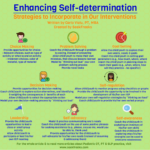
Carlo Vialu, PT, MBA, is co-creator of SeekFreaks. He loves promoting function and participation for children and youth with disabilities, from our assessment to our interventions, via his continuing education courses at ApplyEBP.com. See Amy’s webinars on Self-determination here. More about these courses after the article below.
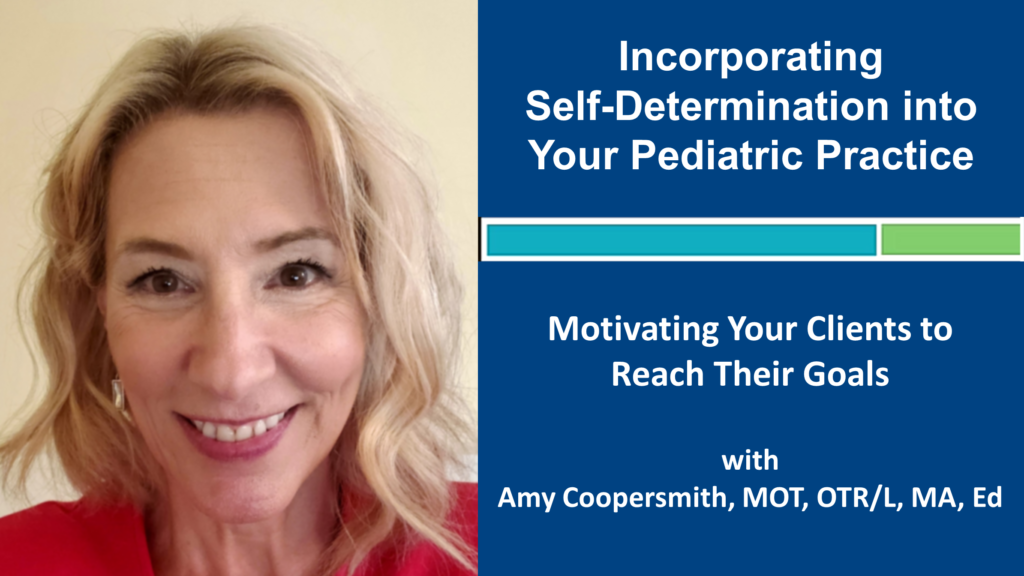
Incorporating Self-Determination 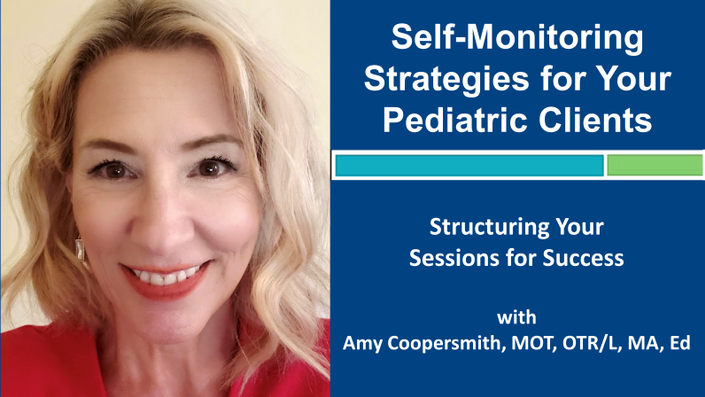
Self-Monitoring Strategies 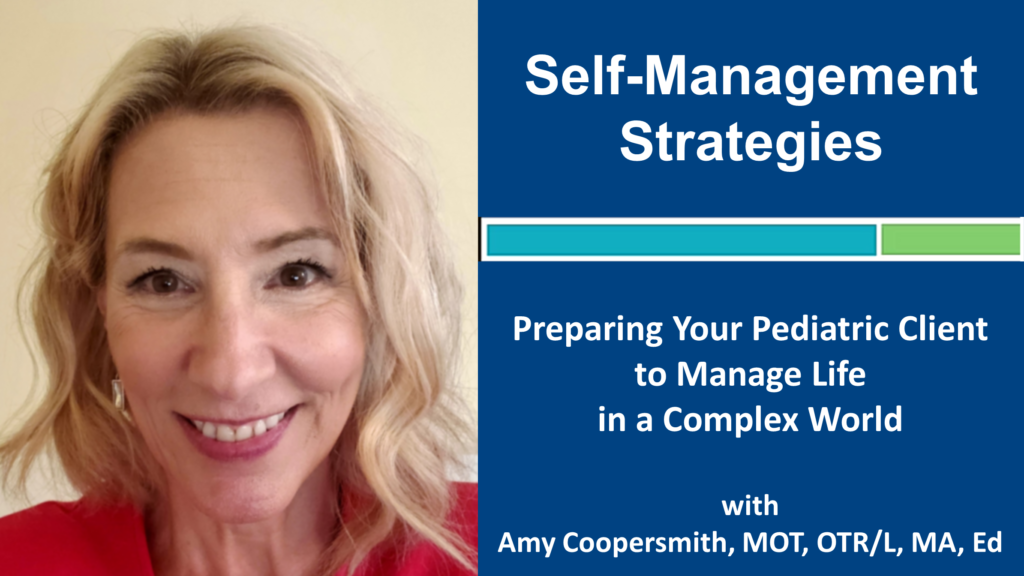
Self-Management Strategies
Our role as therapists go beyond the physical. With every encounter with our clients, we assume many roles, such as a coach, cheerleader and advocate. The way we act and speak matters and influences outcomes.
So, let me take the start of the school year to discuss one of my favorite topics: self-determination!
The definition of self-determination that I love the most comes from Larry, a 34 y/o adult with physical disabilities, from the paper by Angell, Stoner and Fulk, 2010:
“The power to do whatever the heck you want even if anyone says you can’t. Without this I wouldn’t have a life. I’d be stuck at home.”
Such is the power of being self-determined! To live and control life the way you want to. It is no wonder that:
- Self-determined youth are more likely to be actively engaged, take a leadership role, and set direction of discussions of their own transition planning (OSEP’s National Longitudinal Studies, 2005)
- Self-determination is a predictor of post-secondary education and employment (Test et al, 2009; Mazzoti et al, 2016)
- Self-determined adults are more likely to live independently, be employed and earn more as adults (Wehmeyer & Schwartz, 1997; Wehmeyer & Palmer, 2003)
This always make me think…how many of my clients have the “power to do whatever the heck” they want? And if they don’t currently have this power, will they have this power when they are older? Are we making too many decisions for them, or are we giving them opportunities to be self-determined? How is what I am doing and saying impacting their self-determination?
Most of all, I imagine a life that is lived with self-determination…where they are in control of their daily lives and their futures.
Self-determination is not a single skill or attitude. It consists of various skills and attitudes, including:
- Choice-making – identifying & communicating preferences
- Problem-solving – identifying a problem and generating solutions
- Goal-setting – individual’s actions to reach a specified outcome
- Decision-making – concluding which solution is best given one’s circumstances, values, priorities & needs
- Leadership – leading, guiding and directing
- Self-awareness – understanding one’s own strengths & weaknesses
- Self-regulation – examining the environment and responses, and revising strategies as needed
- Self-advocacy – speaking up for one’s own behalf
- Self-efficacy – believing in one’s ability to complete a task & reach the goal
- Perception of control – believing that one has control over outcomes
Just like any other skill (e.g., walking, communicating, writing), self-determination develops over a lifespan and can be taught! (Doll, Sands, Wehmeyer and Palmer,1996) Therefore, we should start as early as possible to incorporate self-determination-enhancing strategies in our interventions.
See SeekFreaks’ self-determination strategies infographic above. I provide suggestions for developing 8 of the self-determination elements. The strategies I provide can be summarized with these 4 phrases:
- Coaching our clients
- Allowing our clients to practice a skill
- Modeling our own self-determination process
- Providing opportunities
Which ones can you incorporate right away? Any other strategies you utilize and found to be effective?
Here are additional resources for promoting self-determination:
- Virginia Department of Education’s I’m Determined Project: https://www.imdetermined.org/
- Self-determined Learning Model of Instruction: https://beach.ku.edu/sites/default/files/SDLMI-Teachers-Guide_4-2017.pdf
- A collection of self-determination resources: http://www.pacer.org/transition/learning-center/independent-community-living/self-determination.asp
For more on Self-Determination, see:



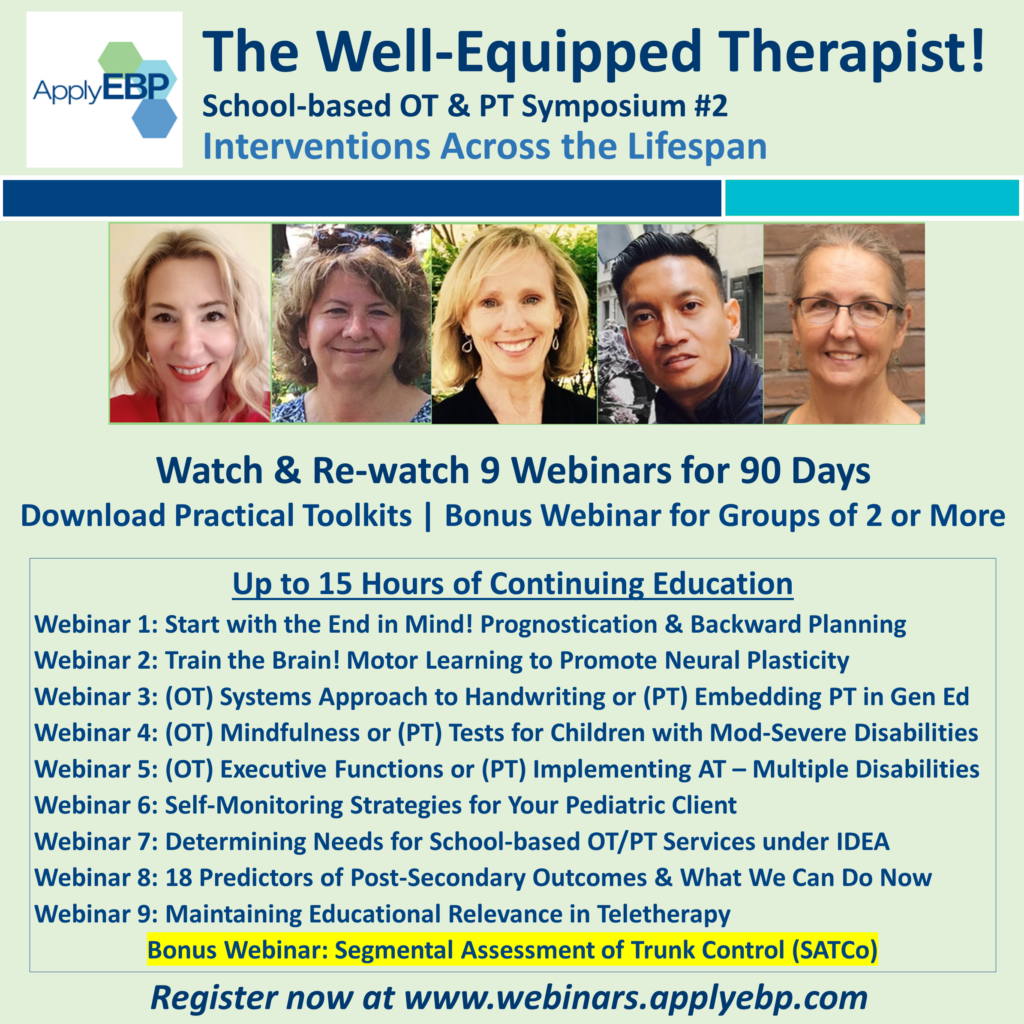
References:
Angell, M.E., Stoner, J.B., Fulk, B.M. (2010) Advice from adults with physical disabilities on fostering self-determination during the school years. Teaching Exceptional Children; 42(3): p. 64-75. Education Periodicals.
Doll, B., Sands, D.J., Wehmeyer, M.L., Palmer, S. (1996). Promoting the development and acquisition of self-determined behavior. In Sands, D.J. & Wehmeyer, M. L. (1996). Self-determination across the life span: independence and choice for people with disabilities (p. 65-90). Baltimore: Paul H. Brookes.
Facts from OSEP’s National Longitudinal Studies: The self-determination of youth with disabilities (June 2005). Menlo Park, CA: SRI International. Available at www.nlts2.org/fact_sheets/nlts2_fact_sheet_2005_06-2.pdf.
Gerber, P. J., Reiff, H.B., & Ginsberg, R. (1992). Identifying alterable patterns in employment success for highly successful adults with learning disabilities. Journal of Learning Disabilities, 25, 475-487.
Mazzotti, V. L., Rowe, D. A., Sinclair, J., Poppen, M., Woods, W. E., & Shearer, M. L. (2016). Predictors of post-school success: A systematic review of NLTS2 secondary analyses. Career Development and Transition for Exceptional Individuals, 39(4), 196-215.
Test, D. W., Mazzotti, V. L., Mustian, A. L., Fowler, C. H., Kortering, L., & Kohler, P. (2009). Evidence-based secondary transition predictors for improving postschool outcomes for students with disabilities. Career Development for Exceptional Individuals.
Wehmeyer, M. L., & Schwartz, M. (1997). Self-determination and positive outcomes: A follow up study of youth with mental retardaiotn or learning disabilities. Exceptional Children, 63(2), 245-255.
Wehmeyer, M. L., & Palmer, S. B. (2003). Adult outcomes for students with cognitive disabilities three-years after high school: The impact of self-determination. Education and Training in Developmental Disabilities, 38(2), 131-144.
Wehmeyer and Schalock (2001). Self-determination and quality of life: implications for special education services and supports. Focus on Exceptional Children
Wehmeyer and Palmer (2002) A Parent’s Guide to the Self-Determined Learning Model for Early Elementary Students. Beach Center on Disability. Schiefelbusch Institute for Lifespan Studies.
Wood, Karvonen, Test, Browder and Algozzine (2004). Promoting self-determination skills in IEP planning. TEACHING Exceptional Children. 36; 3, pp.8-16
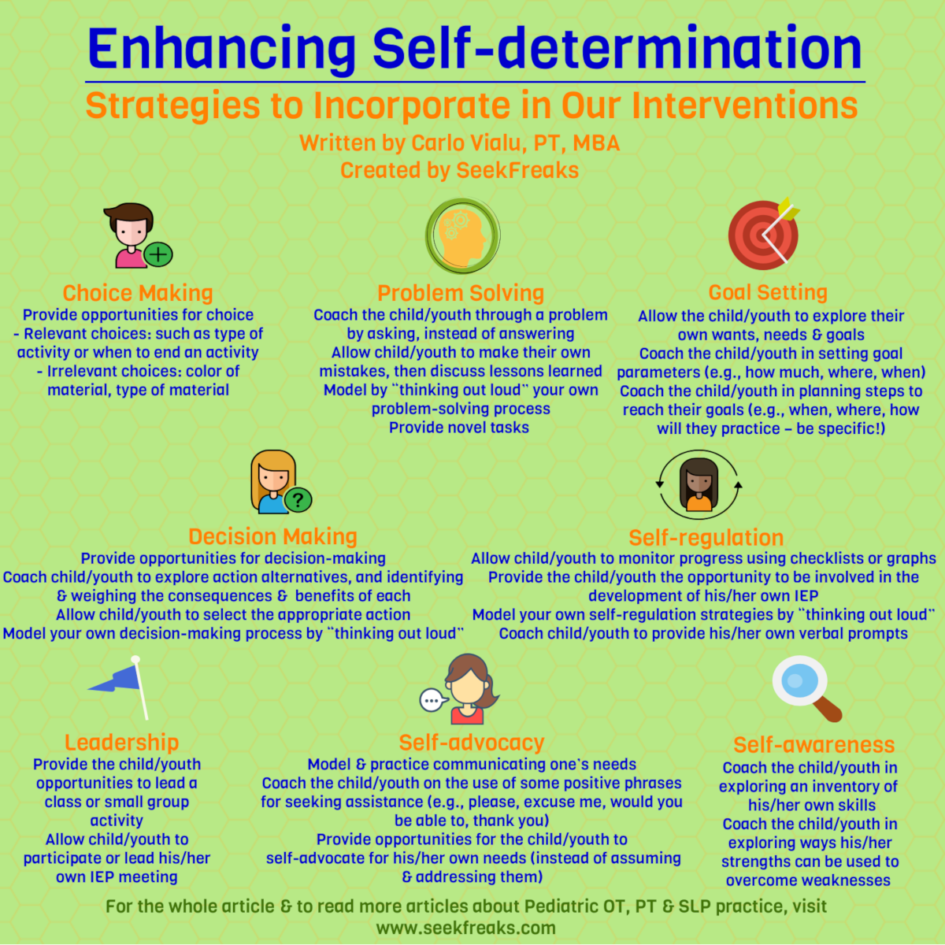
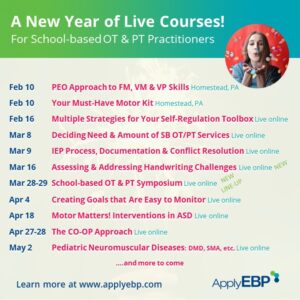


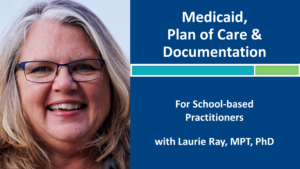
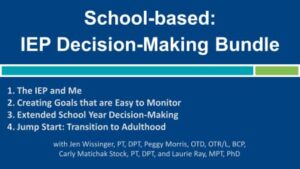

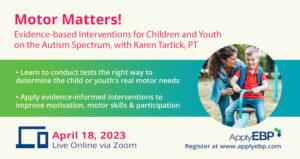
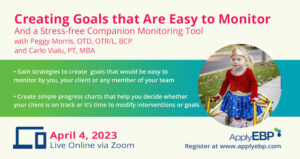

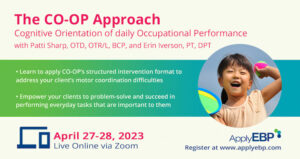
1 Pingback